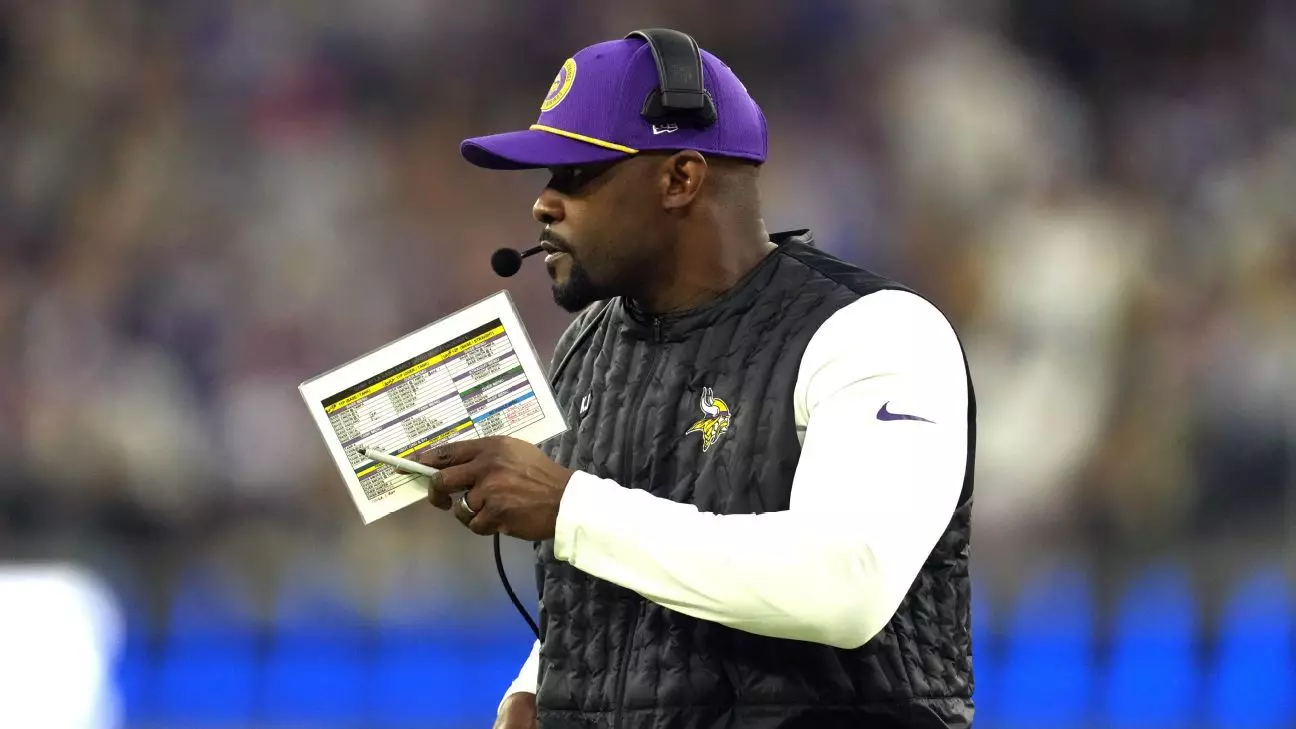The recent decision by a federal appeals court to scrutinize the National Football League’s (NFL) arbitration process marks a pivotal turning point in the ongoing fight against systemic racism within one of America’s most popular sports leagues. For decades, the NFL has prided itself on being a gladiatorial arena of athleticism and entertainment, but beneath the surface, allegations of racial discrimination have long cast a shadow over its reputation. The appellate court’s ruling highlights a fundamental flaw in how the league handles grievances, particularly those related to race, and questions whether the league’s self-policed arbitration system truly serves justice or perpetuates bias.
This judicial intervention signals more than just a procedural victory for Brian Flores; it underscores a broader societal debate about fairness, transparency, and accountability. The court’s critique of the NFL’s arbitration process exposes it as a façade that shields the league from genuine scrutiny, instead offering a closed-door settlement that favors the status quo. The fact that Roger Goodell, the league’s commissioner, currently acts as the arbiter in major discrimination cases raises serious ethical concerns. Such a concentration of power effectively discourages victims from speaking out, fearing not only retaliation but also the impossibility of impartial adjudication within an organization that benefits from maintaining the illusion of fairness on paper alone.
The court’s decision emphasizes a larger truth: that systemic change requires more than internal rules and superficial reforms. It calls into question the league’s ability—or willingness—to confront its own ingrained biases. If the NFL truly intends to be a leader in diversity and inclusion, it must overhaul its arbitration policies and create mechanisms that allow for independent review and impartial justice. The current system, as exposed by the court, is inherently flawed—crafted in a way that muffles voices and sustains racial disparities behind closed doors.
Florence’s Fight: Challenging the League’s Status Quo
Brian Flores’ courageous legal battle serves as a potent symbol of resistance against institutional injustice. A former NFL coach who alleges systemic racism influenced hiring and promotional practices, Flores’s story is emblematic of countless Black professionals whose careers are hindered by invisible barriers and biased decision-making. When Flores publicly voiced his concerns, he risked both his reputation and his livelihood—a testament to his conviction that change is necessary, even at great personal cost.
Flores’s case sheds light on a stark reality: despite the league’s high-profile image, Black coaches remain significantly underrepresented in decision-making roles. The diminutive number of Black head coaches contrasts sharply with the diversity of the athlete roster, revealing a disconnect that the league has tried to gloss over. The court’s recognition of Flores’s claims, and subsequent acknowledgment of the league’s flawed arbitration system, puts the NFL on notice that its practices are under scrutiny and must be reformed.
What makes Flores’s stand even more inspiring is his willingness to challenge a billion-dollar industry on moral grounds. His legal fight pushes beyond regulatory compliance, urging the NFL to confront its own complicity in perpetuating racial injustice. This isn’t merely a personal grievance; it’s a clarion call for change, a reminder that real progress requires standing up to powerful institutions that have historically resisted accountability.
The Game of Power and the Need for Structural Reform
The NFL’s proposed reforms—if genuine—must go beyond superficial policy adjustments. They demand an overhaul of a culture rooted in rigidity and privilege. The court’s decision highlights that the league’s arbitration provisions effectively prevent Black coaches like Flores from seeking justice in a neutral forum. Instead, decision-making remains concentrated within the league’s inner circle, reinforcing existing hierarchies based on race and power.
This case also shines a spotlight on the broader societal failure to address racial disparities in workplaces nationwide. The NFL is merely a microcosm of larger systemic issues. If a sport as prominent as football cannot remove the biases embedded in its organizational structures, then the country risks perpetuating inequities that threaten social cohesion and justice.
The legal ruling does more than just challenge the NFL—it questions the legitimacy of self-regulation in powerful institutions. True accountability can only be achieved through independent oversight, transparency, and cultural shifts within the league. The NFL’s future reputation depends on whether it chooses to embrace these reforms or clings to a historically flawed system that favors the powerful over justice.
While the NFL signals its intent to fight the ruling, the very act of contestation underscores the league’s vulnerability. It must confront the uncomfortable truth: systemic racism persists at its core, and Until it’s addressed head-on, meaningful change will remain elusive. Flores’s litigation is not just about football; it’s about redefining what justice looks like in America’s game and, by extension, American society at large.


Leave a Reply